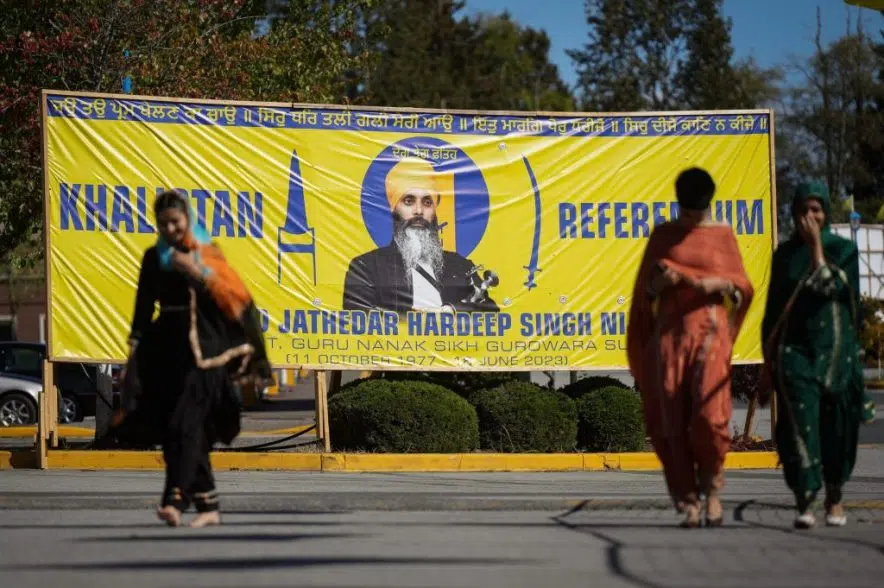The premier of Saskatchewan has commented on the rising tensions between Canada and India.
On Monday, Prime Minister Justin Trudeau announced the federal government was investigating “credible allegations” about India’s potential involvement in the killing of Canadian citizen and Sikh leader Hardeep Singh Nijjar.
Nijjar was gunned down in June outside of a Sikh temple (or Gurdwara) in Surrey, B.C.
The government of India has denied involvement.
“This is very serious,” Premier Scott Moe told reporters on Wednesday in Saskatoon.
“The fact that the prime minister has publicly communicated and (has) singled out one nation in a very unthinkable crime here in Canada — something that I’ve never seen a prime minister do in my life before — tells me that this is a very serious incident of which he has some significant intelligence behind.”
Moe said the provincial government wasn’t aware of this information until the rest of the country knew.
“We know what other Canadians know from what’s been reported in the media and what the prime minister himself has said,” Moe said.
Moe said the province has faith in whoever conducts the investigation but would separate the matter to some degree from Saskatchewan’s trade relationship with India.
Moe has previously expressed concerns over seemingly deteriorating relations between Canada and India and what that would mean for Saskatchewan.
Saskatchewan’s trade and export development minister, Jeremy Harrison, said the allegations need to be taken seriously if proven to be true.
“I am hopeful that the federal government will have had rock-solid facts and evidence to back allegations of such a serious and far-reaching nature,” Harrison said in a written statement Wednesday.
However, Harrison also said wanted more clarity from the federal government.
“With respect to the EPTA (Early Progress Trade Agreement) after numerous requests for a rationale, including well before the prime minister’s travel to India and Canada walking away from trade negotiations with India, the federal government repeatedly said it was to take pause to make sure Canadians get the best deal,” Harrison wrote.
“If (the allegation) was the reason trade negotiations were suspended, the federal government should have made that information available to provinces and territories and had numerous opportunities to do so.”
Moe said he wasn’t concerned about Saskatchewan’s trade office in India being affected by potential sanctions in the future.
“The office I think is an important piece of protecting our market share, expanding our market share but also ensuring that we have that continued trade relationship through times of unrest,” he said.
After Canada expelled an Indian diplomat, India responded in kind. India has also issued a travel advisory warning its citizens of potential danger in visiting Canada, which Canada has rebuked.
Ujjal Dosanjh
Former B.C. premier Ujjal Dosanjh was on Wednesday’s Gormley to talk about some of the implications of the accusations against India.
Dosanjh said he’s inclined to believe the prime minister’s claims although he has presented no evidence.
“What boggles the mind here is that if the prime minister knows that it was prompted by India, then they must know who pulled the trigger. And why are those people not arrested?” he asked on Gormley.
Dosanjh didn’t rule out the possibility of the culprits fleeing the country after the fact.
“If that’s the case, I don’t blame the prime minister. If it’s otherwise, then we should have people apprehended by now,” Dosanjh said.
Nijjar was a Khalistani separatist, meaning he was in favour of creating a separate Sikh homeland. He was named a terrorist by the Indian government, which he and his family denied.











